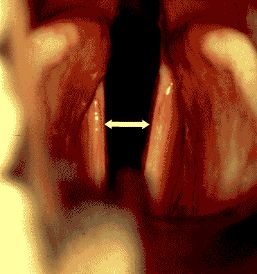Juvenile laryngeal paralysis and polyneuropathy (JLPP) is an autosomal recessive, hereditary disease. Autosomal recessive is a disorder that means two copies of an abnormal gene must be present for the disease or trait to develope.
This affects Rottweilers beginning typically around 3 months of age. Affected dogs have difficulty breathing when excited or exercised and may have a change in their bark. As the disease progresses, they develop weakness and loss of coordination in the hind limbs which will eventually progress to affect the front limbs as well.
One major sign is difficulties swallowing which can result in choking or pneumonia. Another sign is the dog looks like it has kennel cough.
Test Results
Normal This dog has tested normal (or clear) for the mutation known to cause JLPP. It can only transmit a normal gene to offspring, and can be bred to a dog with any test result without risk of producing affected offspring.
Carrier This dog has tested as a carrier for the mutation known to cause JLPP. There is no evidence at present that these dogs will develop clinical symptoms of JLPP. It may transmit either a normal gene or a mutated gene to potential offspring.
Affected/At-Risk This dog has tested as affected for the mutation known to cause JLPP. It is at risk for developing clinical symptoms of JLPP, which generally begin to appear at about 3 months of age. The clinical signs include difficulty breathing, change in bark, weakness and loss of coordination, and difficulty swallowing which can result in choking or pneumonia. There is no effective treatment for this condition, and even with supportive nursing care, these dogs do not live more than a few months after clinical signs begin.

